イヌゴマは茎先で穂のように小花の輪生を重ねます。小花は唇形で上唇が丸く、下唇が3裂、雄しべが4本。花言葉は「善良」「正直」です。
Stachys aspera flowers are arranged in whorls of small flowers at the end of the stem like spikes. The small flowers are lip-shaped with a rounded upper lip, three lobes on the lower lip, and four stamens. The flower language is “goodness” and “honesty.”
【仮名】イヌゴマ, チョロギダマシ
【和名】犬胡麻, 草石蚕騙し
【英名】Stachys aspera
【学名】Stachys aspera
【誕生】06/ ??
【開花】06, 07, 08月
【花色】Pink
イヌゴマ
イヌゴマの概要
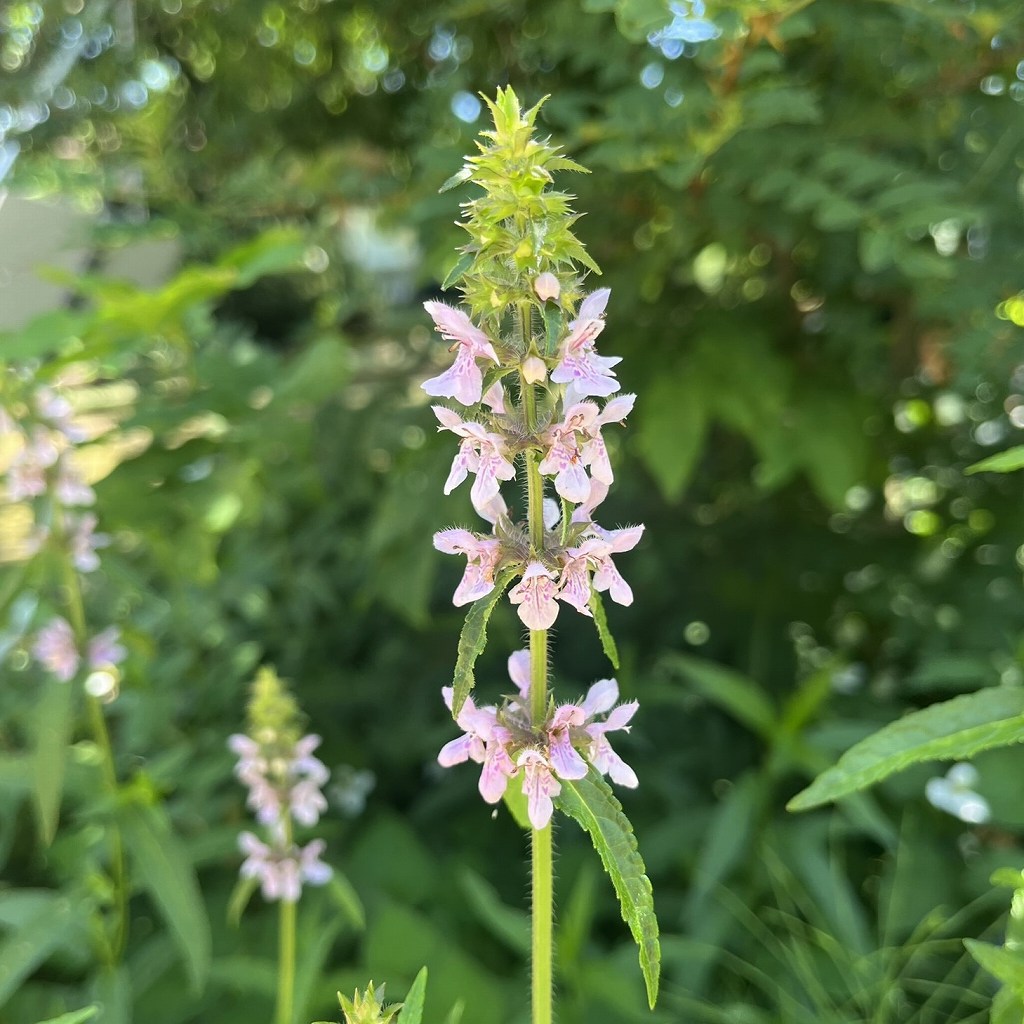
イヌゴマはシソ科の多年草です。日本では北海道から本州、四国、九州まで、国外では朝鮮半島、中国北部、ロシア東部に分布。花は茎先で穂のように小花の輪生を重ねます。昔は農耕地や河川敷など、肥沃な湿地で群生していましたが、今は衰退中。花言葉は「善良」「正直」です。
イヌゴマの名前
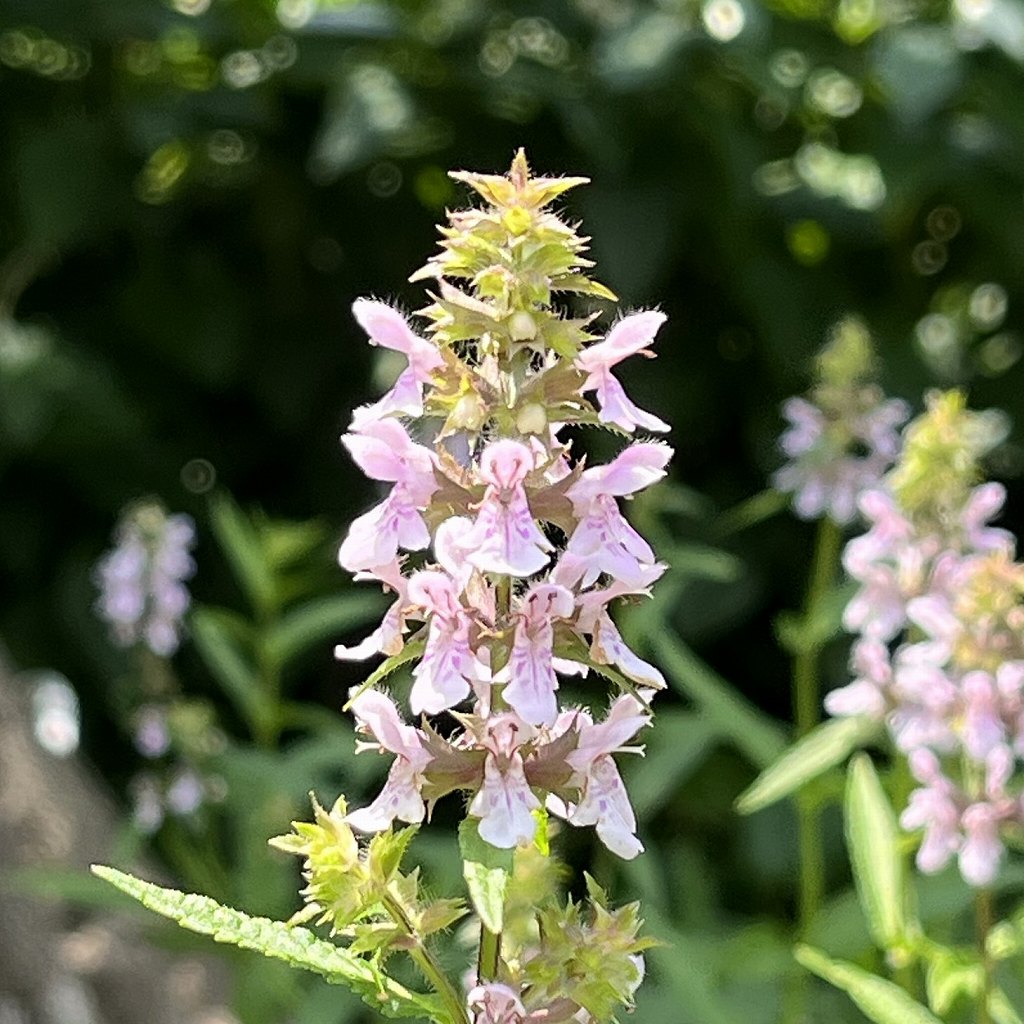
イヌゴマの名前の由来は、「胡麻」に葉が似ていて、実が食べられないので、「犬」がつきました。別名は「草石蚕」に花が似ていて、根が食べられないので「騙し」。ラテン語の属名スタキスは「麦の穂」のような花穂、種小名アスペラは「ザラザラしている」葉裏という意味です。
イヌゴマの姿形
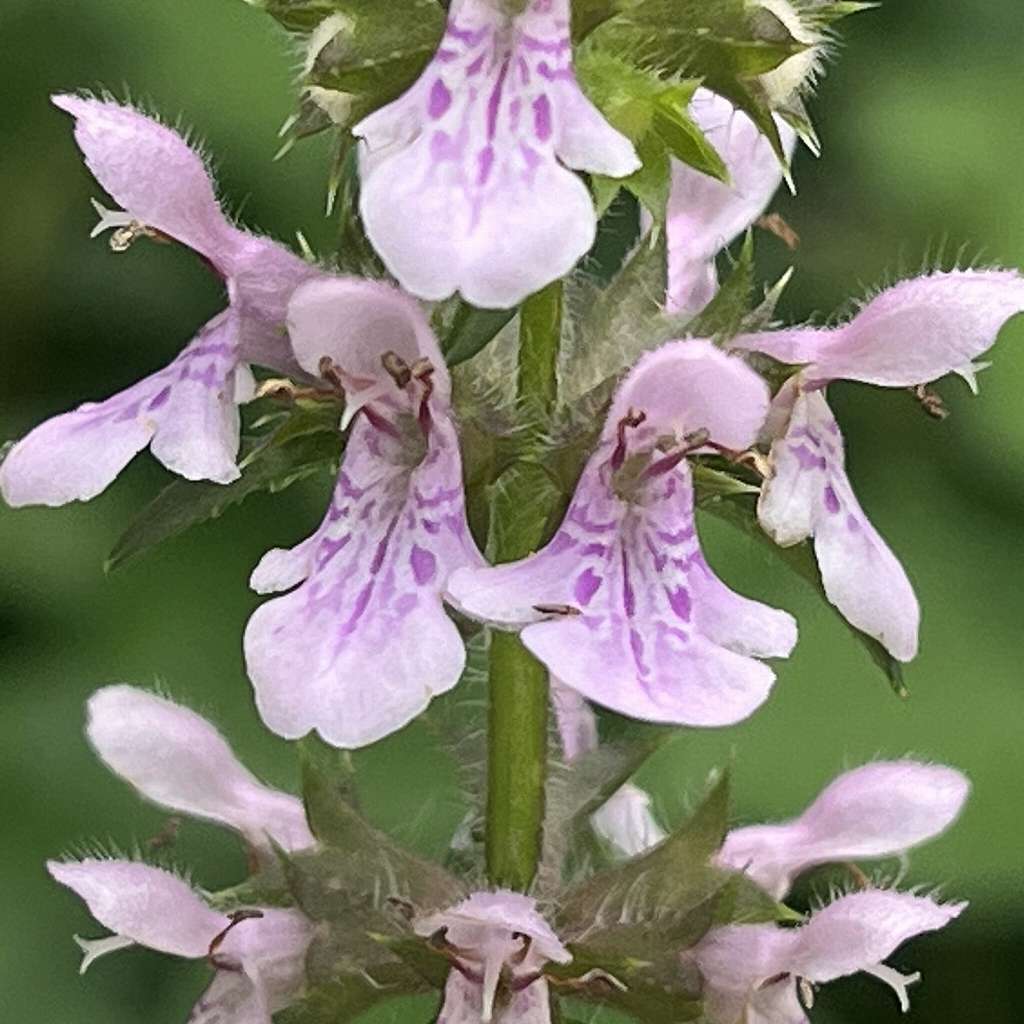
イヌゴマは細長い地下茎を伸ばします。茎は4稜で直立。小さな棘が下向きに生えます。葉は披針形で、縁に浅く鋸歯が入り、対生。表面に皺が寄り、裏面に短毛が密生します。小花は唇形で上唇が丸く、下唇が3裂、雄しべが4本。花後の分果は熟すと萼から種子がこぼれ落ちます。
イヌゴマの種類
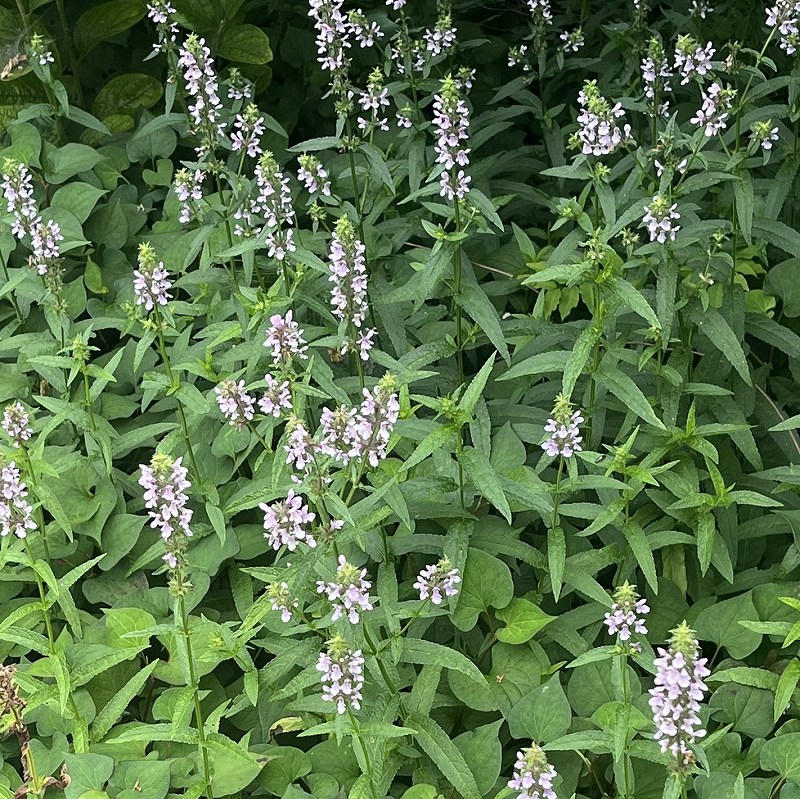
イヌゴマの変種のうち、ヒスピドゥラ種はラテン語で「剛毛のある」という意味。和名が「犬胡麻」です。バイカレンシス種は「バイカル湖の」という意味で毛の多い北方系。和名が「蝦夷犬胡麻」です。ジャポニカ種は「日本の」という意味で南方系。和名が「毛無し犬胡麻」です。
Stachys aspera
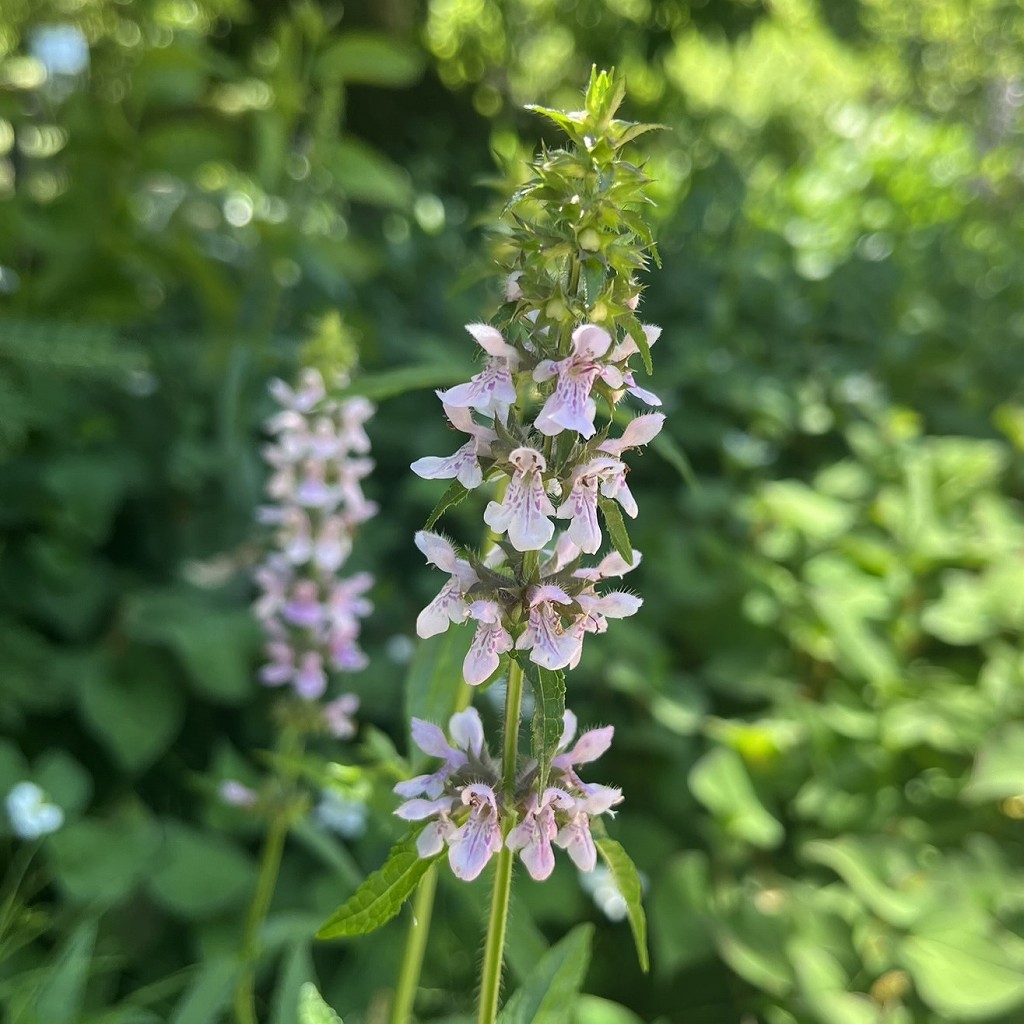
Stachys aspera is a perennial plant of the Lamiaceae family. In Japan, it is distributed from Hokkaido to Honshu, Shikoku, and Kyushu, and overseas to the Korean Peninsula, northern China, and eastern Russia. The flowers are arranged in whorls of small flowers at the end of the stem like spikes. In the past, it grew in clusters in fertile wetlands such as farmland and riverbeds, but it is now in decline. The flower language is “goodness” and “honesty.”
The Japanese name for Stachys aspera means “dog sesame.” This is because the leaves look like sesame, but the fruit is inedible. Another name for it is “fake Chinese artichoke.” Although the flower resembles that of Chinese artichoke, the roots are inedible. The Latin genus name Stachys means “ear of wheat” and describes the shape of the flower head. The specific name aspera means “rough” and comes from the texture of the underside of the leaves.
Stachys aspera grows long, slender underground stems. The stems stand upright with four edges. Small spines grow downward. The leaves are lanceolate, with shallow sawtooth edges, and grow opposite each other. The surface is wrinkled, and the underside is densely covered with short hairs. The florets are lip-shaped with a rounded upper lip, a three-lobed lower lip, and four stamens. When the fruit ripens after flowering, the seeds fall out of the calyx.
Among the varieties of Stachys aspera, the hispidula species means “hairy” in Latin. The baicalensis species means “from Lake Baikal” and is a hairy northern variety. The japonica species means “Japanese” and is a hairless southern variety.


